Articles & Resources
Explore articles and resources designed to bring encouragement, insight, and hope for every step of the recovery journey.
Cling to His Words for Hope in the Fight Against Addiction

Cling to His Words for Hope in the Fight Against Addiction
When we love someone with a substance use disorder, it’s natural to turn to the internet, books, or other people for guidance and strength. But the truest source of hope and wisdom comes from God’s Word.
Some of our Finding Hope leaders shared Scripture that has encouraged them in their own recovery journey. May these verses bring you comfort, strength, and peace. Take time to read through them, write down the ones that speak to your heart, and keep them close.
“You will be blessed when you come in and blessed when you go out!” Deuteronomy 28:6
“Let the morning bring me word of your unfailing love, for I have put my trust in you. Show me the way I should go, for to you I entrust my life.” Psalms 143:8
“The Lord God is my strength, [my source of courage, my personal bravery, my invincible army]; He has made my feet [steady and sure] like hinds’ feet And makes me walk [forward with spiritual confidence; not stand still in terror] on my high places [of challenge, trouble, suffering, or responsibility].” Habakkuk 3:19 (Amplified)
“Rejoice in the Lord always. I will say it again: Rejoice! Let your gentleness be evident to all. The Lord is near. Do not be anxious about anything, but in every situation, by prayer and petition, with thanksgiving, present your requests to God. And the peace of God, which transcends all understanding, will guard your hearts and your minds in Christ Jesus.” Philippians 4:4-7
“Trust in the Lord with all your heart and lean not on your own understanding; in all your ways acknowledge him, and he will make your path straight.” Proverbs 3:5-6
“I believe that I shall look upon the goodness of the Lord in the land of the living! Wait for the Lord; be strong, and let your heart take courage; wait for the Lord!” Psalm 27:13-14 (ESV)
“You keep him in perfect peace whose mind is stayed on you, because he trusts in you.” Isaiah 26:3
“We demolish arguments and every pretension that sets itself up against the knowledge of God, and we take captive every thought to make it obedient to Christ.” 2 Corinthians 10:5
“For sin shall no longer be your master, because you are not under the law, but under grace.” Romans 6:14
No matter where you find yourself today — whether weary, discouraged, or hopeful — God’s Word reminds us that we are never alone. His promises are steady, His strength is unfailing, and His peace is available to each of us.
There is hope in the fight against addiction.
For more information, visit:
All Things New: Hope for a New Year | Bible Reading Plan
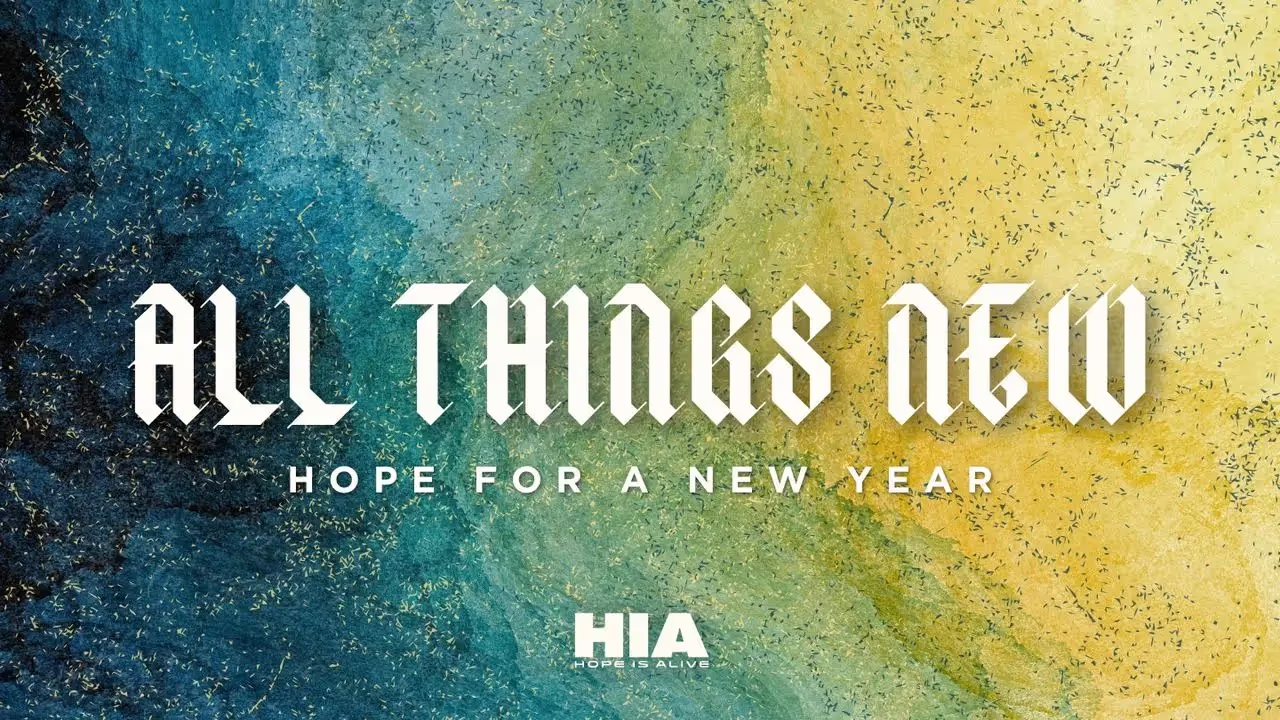
All Things New: Hope for a New Year
One of the core promises God gives us is that we do not have to live as our old selves — God makes us new! Explore this truth and discover the hope that comes with a new year in this five-day reading plan from Lance Lang and Hope is Alive Ministries.
Start the plan here: All Things New: Hope for a New Year
Steady Words for Unsteady Days
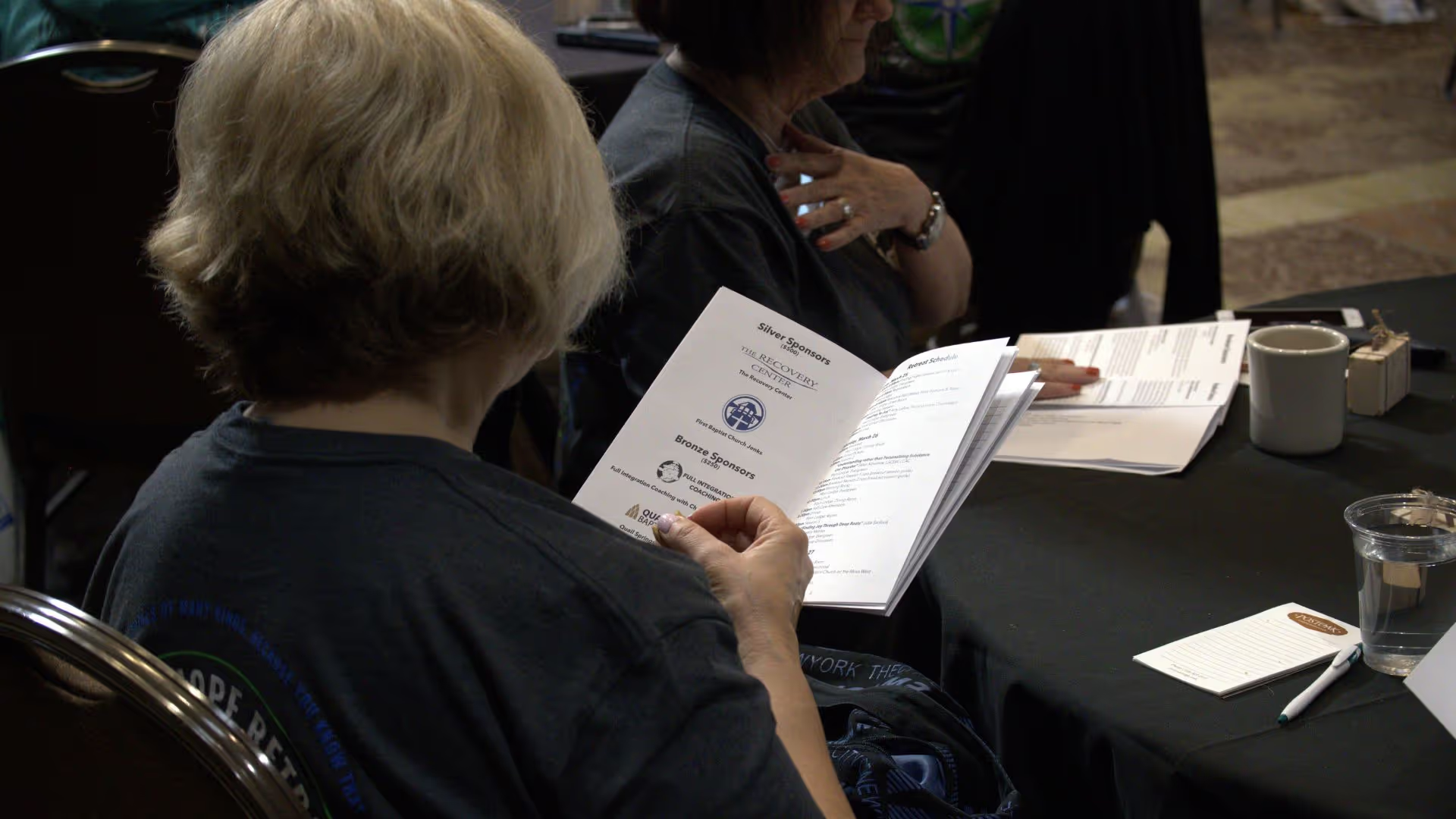
Steady Words for Unsteady Days
At Finding Hope, you’ll often hear our leaders and members share key phrases that have been pivotal in their individual recovery journeys. These phrases are reminders of truth, strength, and surrender.
Nothing changes if nothing changes.
For a long time, I believed that if I just prayed harder or loved him more, things would get better. But the truth is, change requires action, not just from him, but from me too.
It wasn’t until I began to set boundaries, step out of the chaos, and seek community that real healing began in me.
If love were enough to change the addict’s behavior, then no one would be an addict.
They have to want recovery more than you want it for them.
I stayed for years, thinking my love would be the catalyst for change. But love doesn’t fix addiction. Surrender and action fix addiction.
When I finally stopped trying to save him and started focusing on my own healing, everything changed. Because I changed.
Pause and pray before responding.
I’ll be honest, I didn’t always respond with grace. In the chaos, emotions often led the way. But learning to pause and pray before reacting has changed everything.
Now, instead of reacting in fear or frustration, I respond with clarity, calm, and wisdom. That pause creates space for peace.
The addict and the person are two different people.
There were times I didn’t even recognize my husband — the lies, the manipulation, the broken promises. But I had to learn to separate the man from the disease.
Doing so helped me extend grace even while holding firm boundaries. It allowed me to grieve who he was without losing who I was.
Satan attacks where we are weakest.
When my husband relapsed, it knocked the wind out of me. I felt blindsided and overwhelmed. But the truth is, the enemy had been working behind the scenes long before that moment, whispering lies, creating disconnection, and isolating us from each other and from the truth.
One of my deepest weaknesses was people-pleasing. I didn’t want to stir conflict. I wanted to believe everything would just work itself out. That tendency became fertile ground for the enemy to breed fear, doubt, and denial. It wasn’t until I dove into Scripture, community, and counseling that I learned to stand firm, even in weakness.
Keeping them comfortable in addiction is helping them to stay active in their addiction longer.
This one hurt. For years, I thought I was loving well — protecting him, covering for him, easing his consequences. But all I was doing was prolonging the inevitable.
There came a point when I had to draw the hard line: no alcohol in our home. And when he relapsed again, I had to follow through on that boundary. That decision led to our separation, and while it was heartbreaking, it also brought peace — not just for me, but for our kids.
Enabling felt like love in the moment, but true love sometimes means stepping out of the way so God can do the work.
Let go and let God.
“Let God work.”
“But for God…”
There was a moment when I completely broke. I remember crying out to God with nothing left to offer, whispering, “I can’t carry this anymore. It’s Yours.”
That night wasn’t the end of the pain, but it was the beginning of peace. I stopped clinging. I stopped trying to manage it all. I stepped back, and God stepped in. Looking back, I know now that if it weren’t for God — His grace, His guidance, His comfort — I wouldn’t be here today, walking in freedom and hope.
Final Thoughts
You may not have chosen this road, but you’re not walking it alone. These phrases aren’t magic, but they are reminders for when the ground beneath you feels like it’s crumbling.
Maybe you’re still in the thick of it, trying to decide what boundary to set or wondering if surrender will ever lead to peace. I want to remind you today: God sees you. He knows your pain. He’s not asking you to carry the weight alone.
So what do you need to release? What weakness do you need to bring into the light? What phrase do you need to cling to this week?
The road may be rocky, but God walks with you through every moment, every tear, and every breakthrough. And you — you are stronger than you think, because His strength is made perfect in your weakness.
With hope,
Darcie Stephens, Finding Hope Coordinator
For more information, visit:
After the “Finish Line”: The Impact of Alumni Resources
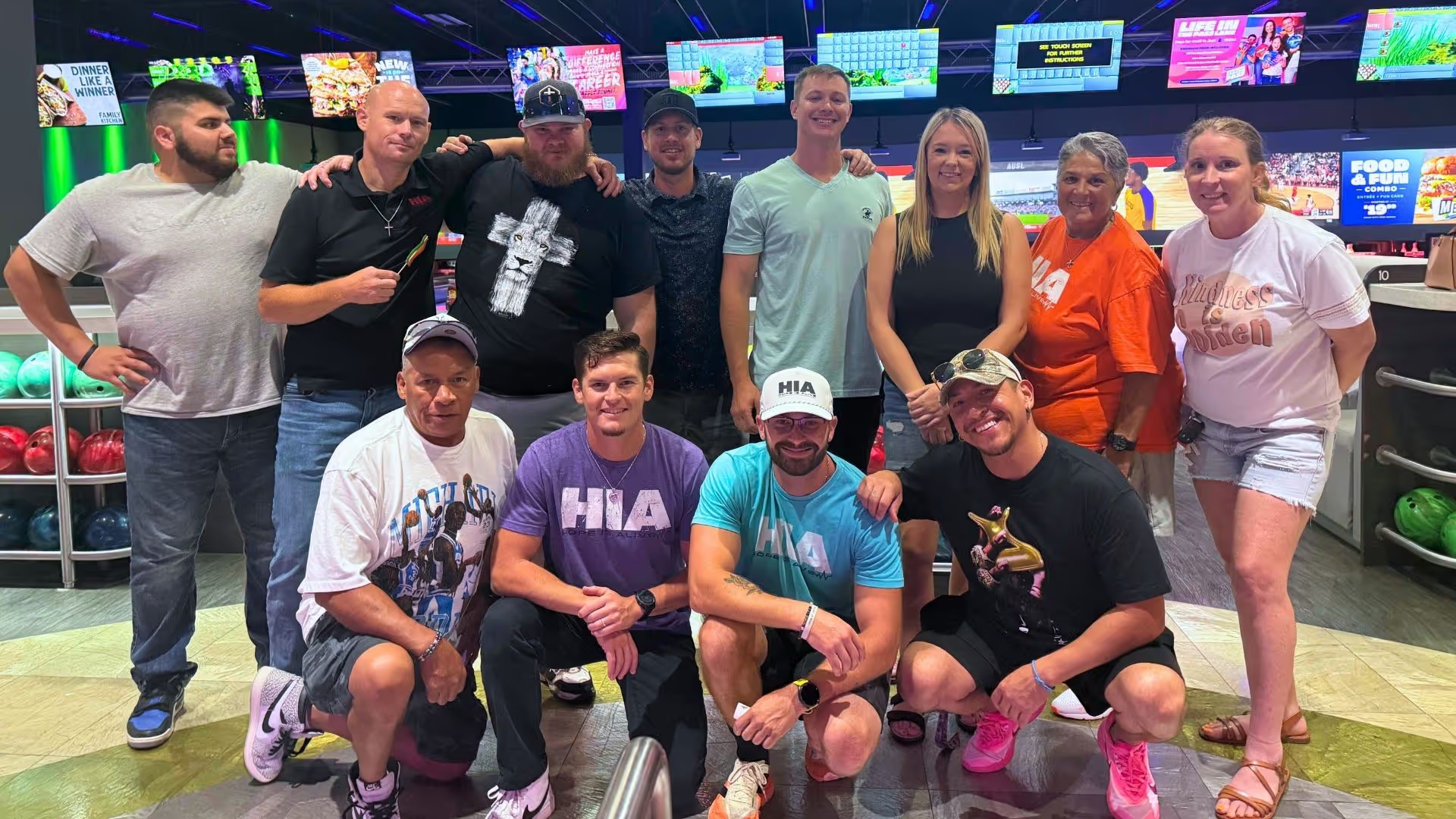
After the “Finish Line”: The Impact of Alumni Resources
If you’ve graduated from a Hope is Alive program, you already know something powerful: recovery is possible. But you’ve also probably realized that recovery doesn’t stop when the program ends. In many ways, that’s when the real work begins.
Reintegrating into “normal life” might be one of the hardest parts of recovery. After the structure, support, and daily accountability of a recovery home, the outside world can feel overwhelming. The pace is faster. The expectations are higher. And let’s be honest — there’s a lot more at stake.
You might be managing a job again, rebuilding relationships, paying bills, and making decisions all on your own. And in the middle of all that, you’re still doing the daily work of staying sober, but without the same level of accountability.
“Something that really helps me are the alumni meetings,” shared Laci Porter, an alum from the HIA women’s program who has been sober since June 15, 2021. “We get to meet once a month and come together to check in, build each other up, and share the victories that we’re getting to experience as we continue our sobriety.”
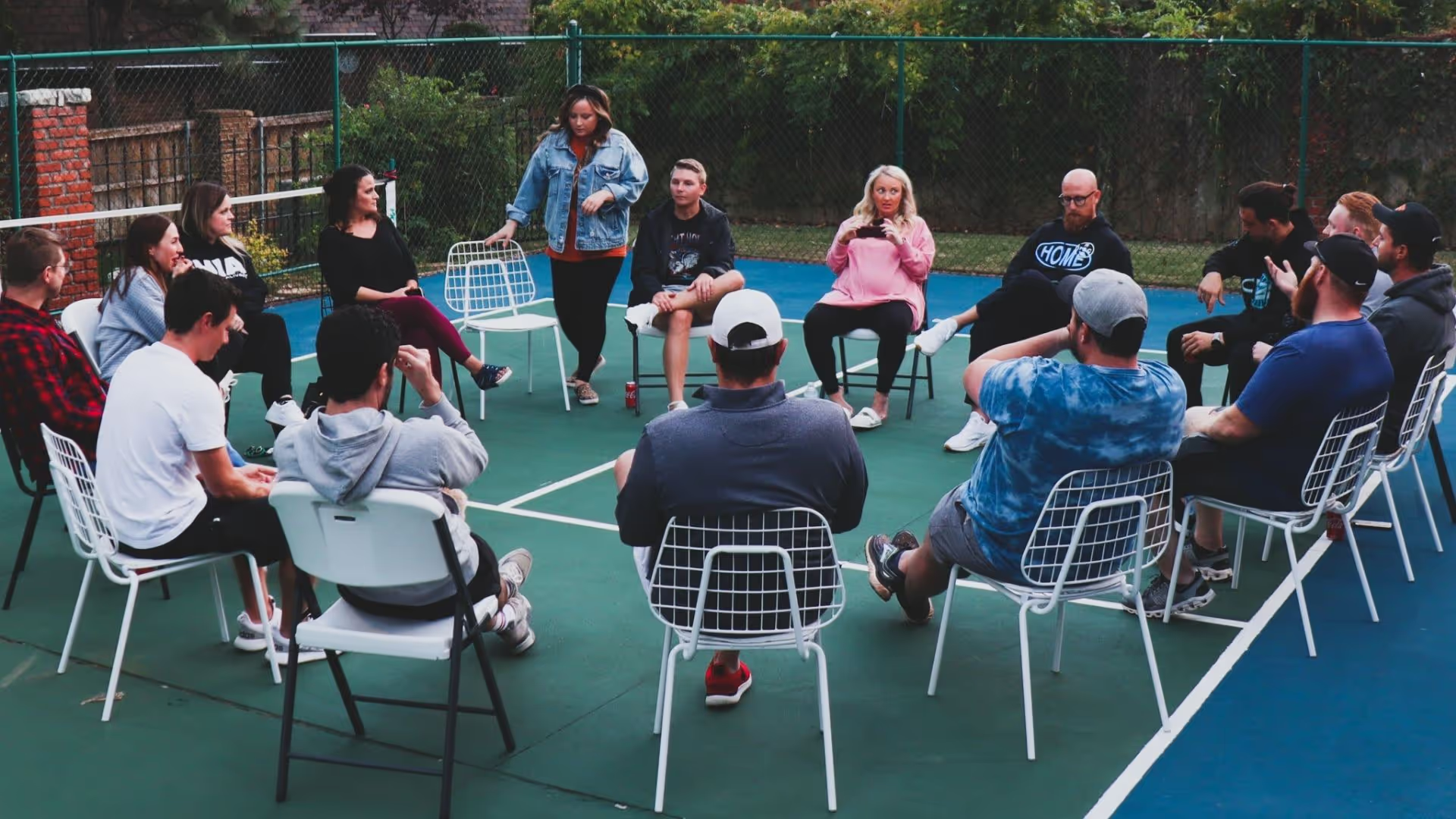
While graduating from the program is a major milestone, recovery isn’t a finish line — it’s a lifestyle. That’s why the Hope is Alive Alumni Association offers a place to stay rooted, to stay close to the people who “get it.” The Alumni Association exists to remind you that you still belong, that your story still matters, and that there’s always a seat at the table for you, no matter how much time has passed.
According to Julie Quinlan, senior leadership and development manager for HIA’s Recovery Homes Program Team, isolation is one of the greatest threats to long-term recovery. It creeps in quietly when you get busy. First, you miss a meeting. Then, you stop returning texts and answering phone calls. Before you know it, you’re trying to carry the weight of recovery alone, simultaneously distancing yourself from every support system you have, including your faith.
“Alumni are welcome at house meetings, special alumni events like golf and ski trips, and all HIA events like Run for Hope and Inspiring Lunches,” Julie explained. “If they have questions about events or anything going on in their lives, they are encouraged to talk with their program manager or any HIA staff member they connected with while in the program. Our goal is to keep graduates connected with the addiction community, giving them a better chance at long-term sobriety.”

Julie has seen firsthand that alumni who stay connected through monthly alumni meetings tend to experience greater long-term success in their sobriety. These gatherings provide a space to share openly, reconnect with others, and guard against the subtle pull of isolation.
Christian Briley, an alum from the HIA men’s program who has been sober since May 12, 2021, shared,“To take a day out of the month to meet up with other alumni and come together, have a good time, catch up, and talk about stuff that has gone right or struggles we’re having, has had a big impact on me.”
As an alum, you’ll always have access to HIA staff, and you’ll always be met with respect, support, and the resources you need to continue your recovery journey. Whether you need someone to talk to, to pray with, or to keep you accountable in your sobriety, HIA has your back. Even in moments of relapse, HIA doesn’t turn away.
Unfortunately, HIA graduates have relapsed, but that doesn’t mark the end of their recovery. Instead, HIA rises up and helps with compassion. Whether it’s helping find a new treatment center, offering placement in another sober living home, or simply keeping the door to the alumni community open, HIA is here for the long haul.
Long-term sobriety is sustained through a connection with the addiction community, and the Hope is Alive Alumni Association provides just that — ongoing support, accountability, and community. Whether you’re thriving or struggling, you’re never alone. Recovery doesn’t end with the program; it’s a lifelong journey, and HIA is committed to walking it with you every step of the way.
A Life-Changing Connection | A YouVersion Impact Story

A Life-Changing Connection
I first came across Finding Hope through the YouVersion Bible App. I remember searching for something — anything — that could help me as I was walking through my husband’s addiction. I typed in “families of alcoholics” and “families of addiction,” and scrolled through plans until I found God’s Promises for Families of Drug Addicts and Alcoholics.
I was in such a low place at that time, feeling completely alone in the chaos of my husband’s addiction. But as I read through that plan, it spoke directly to my heart. When I reached the end and saw the link to find a Finding Hope support group near me, I clicked it without hesitation. Until then, I didn’t know support groups like Finding Hope existed.
Since joining Finding Hope, my world has completely changed. My husband is now seven months sober, and I’m still using the tools and lessons I learned through Finding Hope to focus on my own healing.
I still revisit older YouVersion plans and read all the news ones Finding Hope publishes to remind myself of what I’ve learned. They’ve taught me how to support my husband while still caring for myself, and how to lean on God’s promises no matter what season we’re in. Finding Hope has truly helped me grow and develop my character. It’s taught me to respect my husband’s recovery process while continuing my own.
With hope,
Candace Belton, South Carolina
Where Hope Began: Finding Hope Celebrates 10 Years
.avif)
Where Hope Began: Finding Hope Celebrates 10 Years
Ten years ago, a small group of people gathered inside Putnam City Baptist Church in Oklahoma City — hurting, praying, and searching for answers. They weren’t the ones battling addiction; they were the ones loving someone who was.
That night, February 9th, 2015, Finding Hope was born.
Over the next decade, more than 10,000 loved ones of addicts walked through the doors of Finding Hope meetings. This raised awareness about the need for a support group for those grieving the loss of a loved one to addiction. In response to this need, Hope After Loss was created in 2022.
Today, there are over 60 Finding Hope and eight Hope After Loss groups meeting across the U.S., as well as virtual gatherings in two languages that reach families everywhere. There were also six Finding Hope and seven Hope After Loss retreats in 2025 that offered the loved ones of addicts a place to rest and heal.
But numbers only tell part of the story.
Behind every statistic is a mom who finally sleeps through the night. A dad who stopped blaming himself. A wife who realized that her husband’s addiction does not define her worth. A family that discovered that Jesus can bring beauty from brokenness.
Finding Hope and Hope After Loss are just that — hope for loved ones of drug addicts and alcoholics. Together, Finding Hope and Hope After Loss remind individuals and families impacted by addiction that they are not alone, it’s not their fault, and there is hope.
Addiction can impact anyone. Hope can reach everyone.
For more information, visit:
The Community I Prayed For | A Finding Hope Impact Story
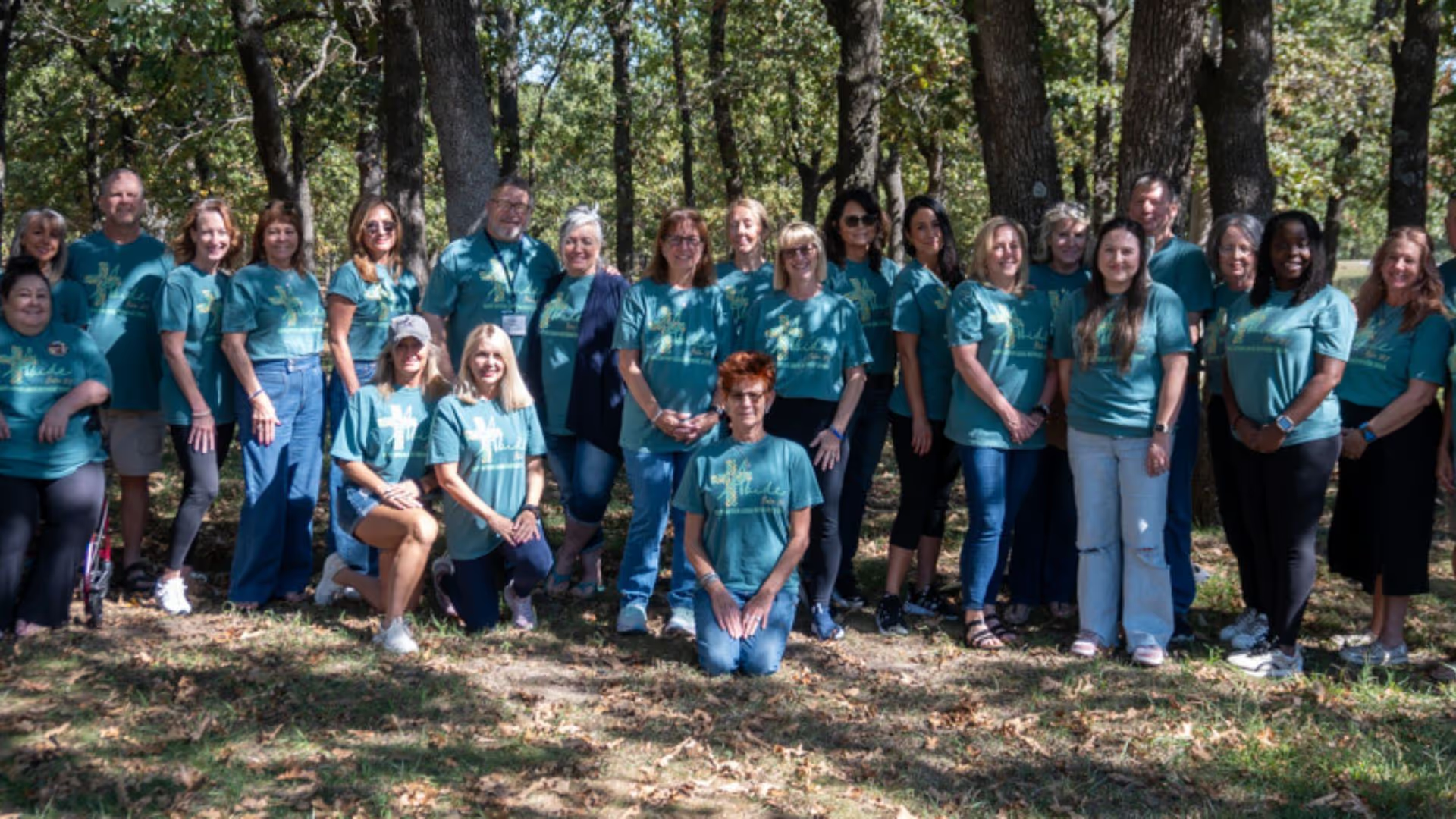
The Community I Prayed For
In August 2024, I discovered Finding Hope during one of the most challenging seasons of my life. Desperate for guidance on how to support a loved one struggling with addiction, I came across a Finding Hope plan on the YouVersion Bible App. That initial encounter led me to their website, then to their meetings, and ultimately to a community I never knew existed — a community I had been praying for.
Since then, Finding Hope has completely changed my life. This support group equipped me with practical tools to navigate the chaos, pain, and fear that come with loving someone with a substance use disorder. But even more than that, Finding Hope pointed me back to Jesus, reigniting my relationship with Him in a way I didn’t even realize I needed.
As my relationship with the Lord grew, I made the decision to say “yes” to whatever opportunity He placed in front of me. Shortly after that, I learned that the Finding Hope Zoom meeting I regularly attended needed new leaders. Because of the time difference living in Hawaii, this was the only meeting that fit my schedule. I didn’t want to lose it. It was in that moment I felt God clearly prompting me: “This is your ‘yes.’”
As my involvement with Finding Hope deepened, I witnessed firsthand how God was blessing their mission. I longed for that same hope and freedom to reach my island community. After much prayer and thoughtful conversations with my pastor and family, I stepped forward to bring Finding Hope to Hawaii through in-person meetings.
The greatest lesson I’ve learned from Finding Hope is this: Fix your eyes on Jesus first. Seek Him. Trust His plan. He will lead and sustain you every step of the way.
With hope,
Jenn L., Ewa Beach, HI
Finding the Courage to Trust Again
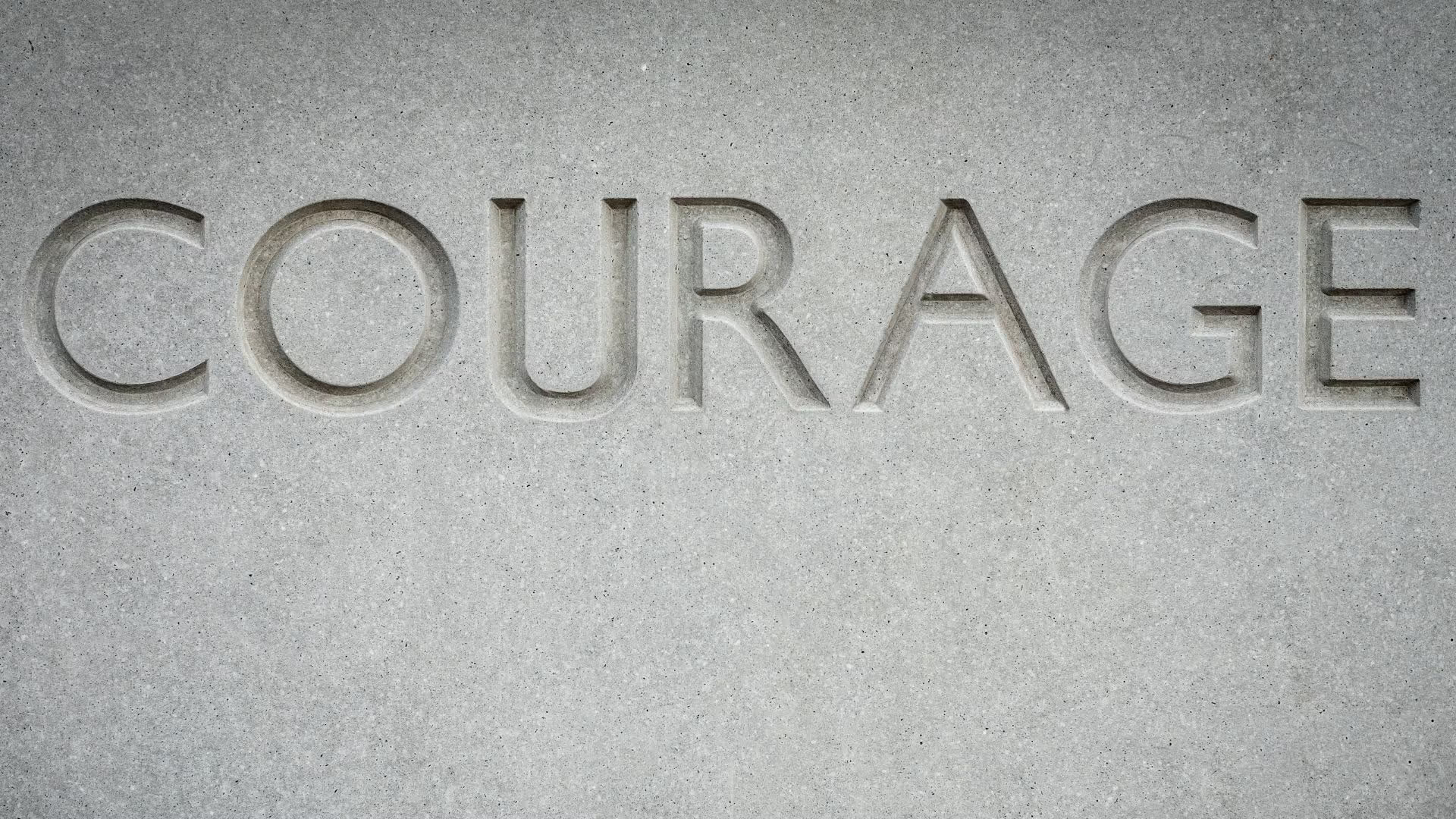
Finding the Courage to Trust Again
“But those who trust in the Lord will find new strength. They will soar high on wings like eagles. They will run and not grow weary. They will walk and not faint.” Isaiah 40:31
What is Trust?
Trust is the assured reliance on the character, ability, strength, or truth of someone or something. It’s the deep confidence that you can feel emotionally and physically safe in a relationship. Trust allows you to be vulnerable, to show up as your whole self without fear of betrayal or judgment. When there is trust in a relationship, both people can be authentically themselves.
At Finding Hope, we often say: “We lose trust in bucketfuls, but we gain it back in teaspoons.”
If you’ve loved someone trapped by substance use, you probably know exactly what this means. When my ex-husband relapsed, I didn’t just lose trust — I lost my sense of safety, hope, and clarity. Every late night, every forgotten promise, and every lie chipped away at my bucket of trust.
How Our Loved Ones Lose Our Trust
Let’s be honest: watching someone you love spiral is traumatic. Their actions, fueled by substance use, slowly (or sometimes quickly) dismantle the trust you once had. When he would show up late, or I would catch him in a lie about where he was — again — I felt crazy. But I wasn’t. I was a woman caught in the chaos of someone else’s addiction. You may have experienced similar moments where your loved one:
- Showed up late
- Broke promises
- Hid receipts or substances
- Lied about their whereabouts
- Disrespected your boundaries
- Continually relapsed
When We Don’t Trust, We Try to Control
When trust is gone, we often go into survival mode. I tried to fix it all. I micromanaged his schedule, monitored his behavior, and made excuses. But my attempts to control his addiction weren’t helping him or healing me.
Trying to control someone leads to chaos. It fuels anxiety, frustration, and resentment. The truth is, we have no control over others.
- Our attempts to be in control only steal our peace.
- Our true trust belongs with the Lord.
Scripture Reminds Us:
“Trust in the Lord always, for the Lord God is the eternal Rock.” Isaiah 26:4
“Trust in the Lord with all your heart; do not depend on your own understanding.” Proverbs 3:5
Surrender is where lasting peace and healing truly begin.
I’ve learned that surrender isn’t giving up — it’s giving over. After my ex-husband's most recent relapse, I had to surrender my desire to “make him get better.” I had to hand him over to the only One who truly can.
What to Surrender:
- Your will
- Your relationship with your loved one
- Your expectations
- Your doubt and worry
- Your fear and heartbreak
The old me would have scrambled, begged, and manipulated in order to get him to stop. But this time, I sat in my room and whispered through tears: “Lord, I surrender him to You.” And though nothing in my circumstances changed immediately, my heart did. Peace flooded the very place where fear used to live.
Trusting Yourself Again
Do you trust yourself? When trust has been broken, it’s not just your loved one you stop trusting — it’s often yourself too. You begin to doubt your decisions, your instincts, and even your own worth.
Addiction often brings gaslighting, which is when your loved one twists reality so much that you begin to question yourself. Maybe they’ve told you you’re “too sensitive,” “overreacting,” or even “crazy.” I’ve been there, and I know how deeply it shakes your confidence.
But here’s the truth: you are not crazy. You are not imagining things. And you can learn to trust yourself again.
How? By speaking truth over yourself when the lies feel loud. By calling a trusted friend before you spiral. By seeking counseling. And most of all, by reminding yourself that your worth and your clarity come from God, not from the approval of a broken person.
Rebuilding Trust with Your Loved One
Forgiveness and trust are not the same. You can forgive someone, but rebuilding trust takes time.
Lysa TerKeurst says it best: “Trust is built with time plus believable behavior.”
What does that mean to you?
To rebuild trust, I had to pay attention to actions, not just apologies. I had to see consistency, honesty, and humility. Communication helped too — honest, grace-filled conversations using “I feel” statements:
- “I feel anxious when you don’t answer the phone.”
- “I feel triggered when you come home late.”
Rebuilding Trust with Yourself
Perhaps the hardest person to trust again… is yourself. I’ve had to fight through guilt, shame, and regret. I questioned every decision I made during those 24 years of marriage. But little by little, I’ve started to believe in my own strength again.
Tips to Rebuild Self-Trust:
- Say the truth out loud — even when gaslighting tries to convince you otherwise
- Call a friend or mentor for perspective
- Journal your wins, even small ones
- Pursue counseling or support groups
- Practice grace: healing isn’t linear
Final Thoughts
Healing is holy work.
I know what it’s like to cry yourself to sleep, wondering if it’s ever going to get better. I know what it’s like to question God in the middle of a heartbreak you didn’t choose. But I also know the beauty of surrender, the power of community, and the grace of a God who never breaks His promises.
You are not alone. And you can learn to trust again, in God, your loved one (if they earn it), and most of all… yourself.
With hope,
Darcie Stephens, Finding Hope Coordinator
For more information, visit:
Why Intimate Relationships Are the #1 Cause of Relapse

Why Intimate Relationships Are the #1 Cause of Relapse
We were created for relationship — first and foremost with our Heavenly Father. But in addiction, that divine connection is often severed. Substances become a false comfort, a counterfeit form of intimacy that numbs the pain of rejection, abandonment, and shame.
At Hope is Alive, we walk with men and women every day who are rebuilding their lives after the wreckage of addiction. And while relapse can have many causes — trauma, stress, isolation — one pattern stands out above the rest: intimate relationships.
More people relapse because of unhealthy romantic relationships than any other single factor. It’s not because love is bad. On the contrary, love is a gift from God. But outside of His timing, and without the foundation of emotional and spiritual maturity, intimate relationships often become dangerous distractions — pulling us away from the very healing we so desperately need.
As a former resident and now alumni with seven years of sobriety, I had to learn this the hard way. I had become addicted to sex and love from a young age prior to my substance abuse. The Hope is Alive curriculum and my mentor, Allyson Lang, helped guide me through this. Even though I wanted to seek out a relationship, I trusted those who were leading me at HIA, and I chose to wait to date.
Substituting People for the Presence of God
When someone enters recovery, their heart is still hungry for connection. It’s tempting to believe a romantic relationship will meet that need. But instead of healing, what often follows is emotional chaos — jealousy, insecurity, dependency, and heartbreak. For someone whose emotional stability is still fragile, these powerful emotions can quickly lead back to old coping mechanisms.
One of the greatest dangers in early recovery is replacing our need for God with our desire for people. We see it all the time — a resident starts to grow, begins to feel better, and then meets someone. Suddenly, their focus shifts. Time in God’s Word fades. Accountability becomes optional. Church is replaced with phone calls and coffee dates. Before long, they’re spiritually dry and emotionally reactive. Inevitably, the relationship struggles — and in the absence of the Lord’s strength, the person falls back into addiction.
The main problem that exists for me, and many others in addiction, is not knowing what love actually is. We chase the intoxicating idea of love, and while it feels good in the moment, just like substances, the high eventually wears off. Searching for happiness in someone else is really just a cover for insecurity.
The truth is, no human relationship can do what only God can. When we look to a boyfriend or girlfriend to heal our brokenness, fill our emptiness, or make us feel whole, we are asking them to be a savior. And that role is already filled by Jesus.
Building on Solid Ground
At Hope is Alive, we challenge our residents to wait — not because we want to control them, but because we want them to thrive. Waiting a year before entering a romantic relationship gives space for deep inner healing: reconnecting with God, discovering identity, developing emotional sobriety, and learning healthy boundaries.
Scripture tells us in Matthew 6:33, “Seek first the kingdom of God and His righteousness, and all these things will be added to you.” That includes relationships. When you seek God first, He aligns everything else — including love — in His perfect timing. The wrong relationship at the wrong time can dismantle what God is trying to restore.
Just like my alcoholism, I am not cured of my sex and love addiction. It is something I continue to face every single day. I waited my first four years in sobriety to start dating. Because of that patience and hard work in my personal growth, God exceedingly and abundantly answered the desires of my heart. I married my best friend and love of my life, Joy, in June of 2023. We have been married for two years, and I am forever grateful to HIA and my leaders for the life I get to live today.
So, I urge you — don’t trade what’s eternal for what feels good today. Don’t rush the process. Trust that your Heavenly Father knows your heart, your desires, and your future. Until then, pursue the only relationship that will never let you down — the one with Jesus Christ. In Him is the love you’ve always been searching for.
—Grant Green, Director of Program Operations
Are You Responding or Reacting to Your Loved One’s Addiction?
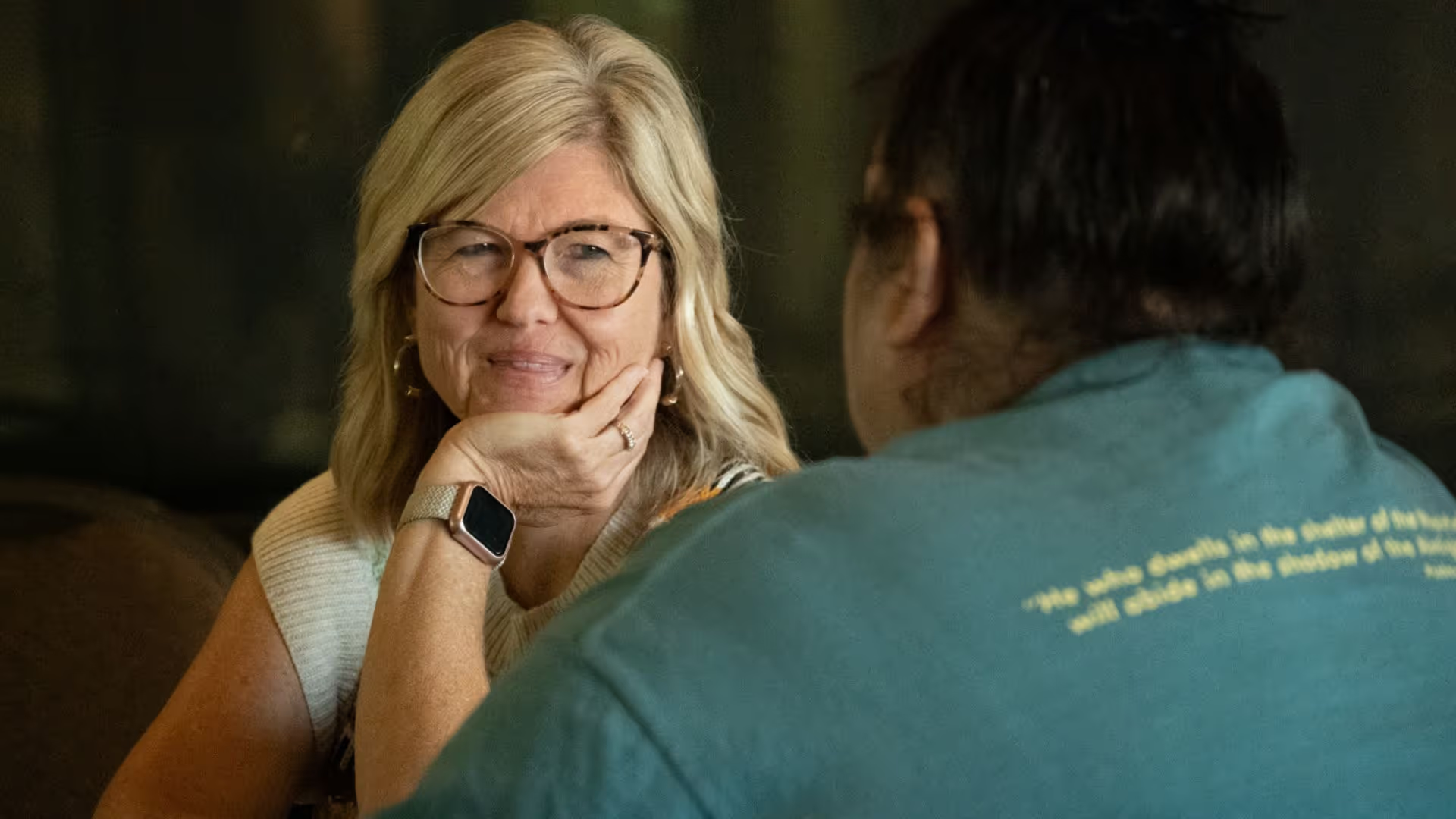
Are You Responding or Reacting to Your Loved One’s Addiction?
Life can be unpredictable when you love someone who struggles with substance use.
You don’t know what to do — or what not to do.
You don’t know what to believe — or what not to believe.
You don’t know what to say — or what not to say.
It’s all hard. Hard when your loved one is actively using, and still hard when they’re sober. Deep down, you may live with the constant fear that doing the wrong thing could lead to relapse, jail, or even death.
At Finding Hope, we often talk about the difference between reacting and responding.
Reacting is quick and impulsive. It often comes from survival mode, with the unconscious mind running the show. At that moment, we may rely on old defense mechanisms or go on autopilot. It might feel like a solution, but in the long run, reacting rarely helps anyone — not your loved one, and not you.
Too often, we are slow to listen and quick to solve the problem — quick to yell, quick to shame, quick to defend. But what might happen if we were quick to hear, slow to speak, and slow to become angry? We sometimes forget that we can influence those around us, both negatively and positively.
Just last week, I woke up to a message on my phone that truly angered me. I wanted to yell back and defend myself. But I knew if I did, the conversation would go nowhere. So I practiced responding instead of reacting. I took a deep breath, prayed, and opened God’s Word.
Responding, on the other hand, is intentional. It means slowing down, weighing the situation carefully, and considering both the short-term and long-term impact. Responding helps you stay aligned with your values and maintain peace within yourself.
Sometimes, the healthiest response… is to do nothing at all.
If you find yourself in a situation where you feel triggered or overwhelmed, try these three simple steps before reacting:
- Stop, take a deep breath, and pray.
- Call a trusted Finding Hope leader or group member.
- Make sure you’re in a clear and healthy headspace before you respond — if you need to respond at all.
This week, take time to reflect. Write down situations where you reacted or felt unsure of how to respond. Pray through those moments. What might a healthier response look like next time?
Some examples might include:
- Your loved one frequently shows up late — or not at all — to family dinners.
- They relapse in their sober living home and ask to come back home.
- Other family members continue to enable, even though you’ve stopped.
- Your loved one drives away from your house under the influence.
- They call from jail, asking for bail and promising (for the third time) to get help if you do.
“Stop fighting, and know that I am God, exalted among the nations, exalted on the earth.” Psalm 46:10 (CSB)
For more information, visit:
The Impact of Donors on Hope is Alive Residents
.avif)
The Impact of Donors on Hope is Alive Residents
At Hope is Alive, recovery is about more than sobriety. It’s about restoration, faith, purpose, and community.
For many residents, Hope is Alive represents something they have been searching for years to find — hope.
Joshua, who spent over 20 years in and out of recovery, shared that Hope is Alive is “by far the best sober living house I’ve ever been in.”
What made the difference? People who genuinely care.
Because of donor support, residents are accomplishing milestones they once thought were out of reach:
- Gaining and maintaining steady employment
- Restoring relationships with family and children
- Getting driver’s licenses and vehicles back
- Returning to school and earning degrees
- Addressing mental health and underlying trauma
- Discovering identity and purpose in Christ
Amy, a resident from Kansas City, shared that she now has 16 months of sobriety, is a full-time student, a house manager, and has made the Dean’s List three times. She credits Hope is Alive — and the generosity behind it — for helping her get to where she is today.
Across the nation, hope in the fight against addiction is spreading.
And while reading about it is powerful, hearing it directly from our residents themselves is something else entirely.
This is Hope is Alive. And this is what your support makes possible. Donate today.
Coping Skills for Triggers, Stress, and Anxiety
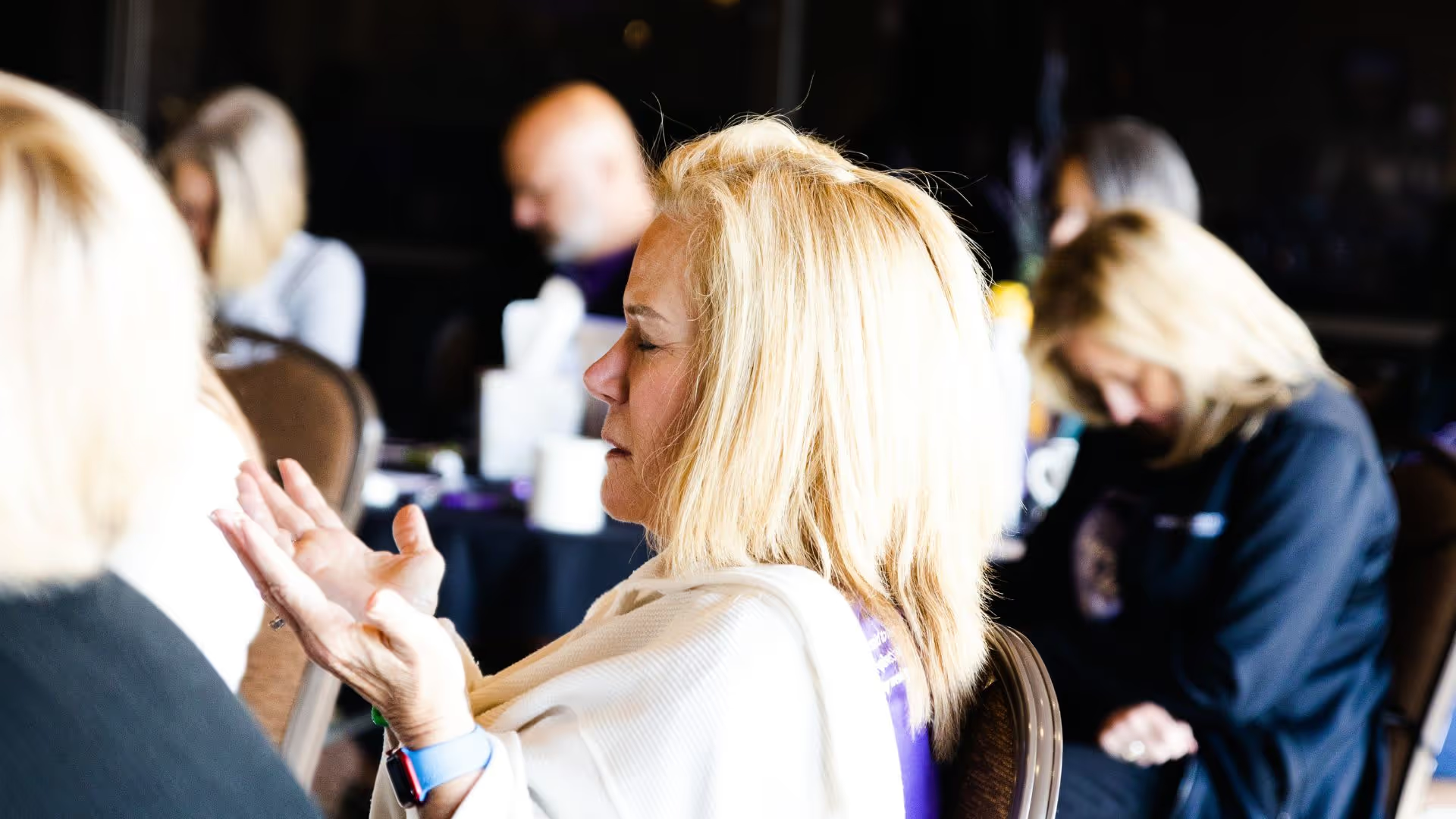
Coping Skills for Triggers, Stress, and Anxiety
Triggers — those moments that remind us of past trauma — can lead to stress, which then opens the door to anxiety and depression. If not addressed, these emotions can consume us. That’s why we’re focusing on healthy coping skills and inviting Jesus into our healing process.
Understanding Trauma: Trauma shows up in different ways:
- Physical trauma can include heartbreaking experiences like witnessing overdoses, calling the police on a loved one, or enduring violence.
- Emotional trauma might look like manipulation, emotional neglect, or the breakdown of healthy communication.
Identifying Your Triggers:
- Late-night phone calls
- A loved one not answering texts
- Requests for money
- Hearing of someone else’s relapse
- Mail from jails, courts, or collection agencies
What are some of your triggers?
For me, one trigger is seeing my husband’s truck in the driveway before 5:00 p.m. After ten years of healing and learning, I’ve found that communicating my feelings with him — not with accusation, but with honesty — makes a big difference. Now, he sends a quick text if he’ll be home early. That simple act helps calm the anxious thoughts before they take over.
These triggers can often lead to stress and anxiety.
Coping Skills
- Brain Dump: Write down every worry or thought swirling in your mind.
- Progressive Muscle Relaxation: Tense and release different muscle groups to release tension.
- Imagery: Picture a place of peace — maybe a beach with Jesus walking beside you.
- Mental Exercises: Recite Scripture, do a puzzle, or repeat calming truths out loud.
- Mindfulness: Notice your thoughts and emotions without judgment.
- Breathing techniques: Take deep, slow breaths to calm your body.
- Grounding: Use your senses to come back to the present moment.
- Name five things you can see, four things you can touch, three things you hear, two things you smell, and one thing you taste.
- Massage Your Hand: With attention and focus
- Physical Activity: Walk, dance, working out, or do a hobby.
- Zoom out: How will this feel six months from now?
- Serve: Do something for someone else.
- Distractions: Watch a movie, listen to music, laugh, play a game.
- Break from Social Media/News: Give your mind space to breathe.
- Pet (or Baby) Therapy: Spend time with a furry friend or little one.
- Journal: Put pen to paper to slow down your brain; write Jesus a letter.
- Finding Hope: Podcast, Bible plans on the YouVersion app, call your Hope Giver.
- Surround yourself with Jesus: The BEST thing you can do. Pray, read the Word, listen to worship music, etc. Remember, you have the Holy Spirit inside you!
What is one coping skill you can practice today and add to your tool belt?
*Remember, if you are struggling with triggers, anxiety, or depression, it’s important to seek support from a professional counselor.
“Peace I leave with you: my peace I give to you. Not as the world gives, do I give to you. Let not your hearts be troubled, neither let them be afraid.” John 14:27 NIV
For more information, visit:

